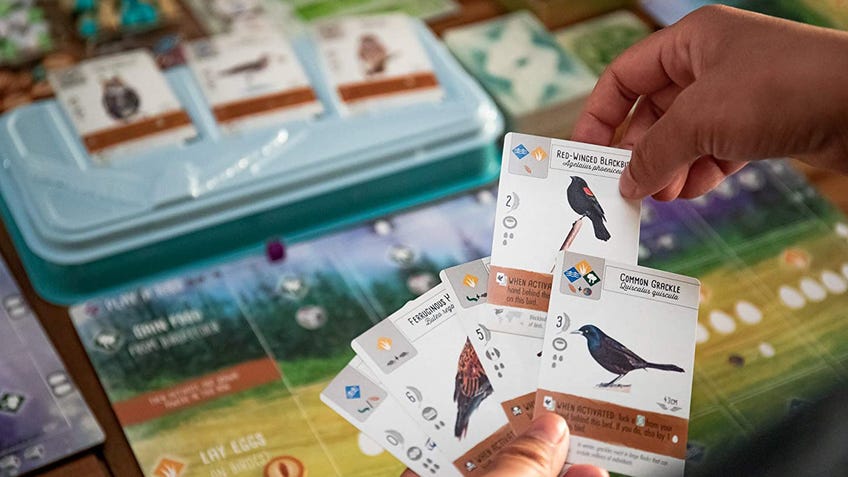Board game executive apologises for sexist reply to Wingspan creator’s criticism of industry sexism
AEG’s Ryan Dancey tells tabletop players to “hold me accountable” for publishing projects from underrepresented groups.
Elizabeth Hargrave, the designer behind Wingspan, Mariposas and The Fox Experiment, took to Twitter earlier this week criticising the lack of women earning awards from the board game industry’s biggest names. A board game company executive responded with his own anecdotal experience, which quickly drew public ire and eventually led to a public apology and promise to improve.
Hargrave’s original thread broke down by gender the nominations for the Spiel de Jahres, the largest award in the tabletop industry, and its two sibling awards since 1999 (she says only men and women are included because no nonbinary or queer designers have yet been nominated). The results are as dismal as you might expect - four women nominated across all years compared to 103 men, with no women cracking the ranks in the past two years.
The point of Hargrave’s thread was to signal that there is something deeply broken within the process that takes a title from design to publication to awards - a board game must be created before it can win awards. Despite non-men having always played tabletop games and seizing an increasing space within communities, play groups and conventions, that representation is not reflected on hobby shop shelves or award lists.
Ryan Dancey directly addressed Hargrave’s thread later that same day, and the AEG chief operating officer believed he could explain the structural sexism affecting board games. It’s worth reading his entire response, but the short version is this: women don’t pitch the right kinds of games (he cites wargames and giant robot titles as good, while “games about politics” and party games as bad), they are too new to design, they over-rely on crowdfunding models and not being able to handle criticism or failure.
“I think there is a significant gap between when someone decides to try and become a game designer and when they produce their first publishable game. Life in that gap consists of a lot of rejection and negative criticism,” Dancey wrote. “I wonder if that gap accounts for a good part of the missing female design cohort - females are socialized in the West to avoid situations where they're subjected to fairly harsh criticism of their abilities and creative ideas. Males are socialized to take the punches and keep moving forward.”
Public responses were much like you would expect, as people pointed out the inherent sexism, not to mention admission of personal influence, in Dancey’s statements. Hargrave responded to some of the more substantive claims, but many people were left expressing sour, wry sentiments of a man fully telling on himself. Dancey apparently felt the fire on Twitter and inside AEG’s offices because he published an equally long apology on May 24th:
“Yesterday I engaged in a discussion about the lack of representation of women as designers in the gaming community. It was not my finest moment. I’m embarrassed and mad at myself for the tone and content of my contribution to that discussion. It doesn’t reflect my views and it certainly doesn’t reflect the views of the company I work for.I’m sorry for any harm I have caused and any offense I have given,” Dancey wrote.
“This topic is extremely important to me and I want to be a part of the solution not a part of the problem. I’ve discussed both my poor original message and the aftermath with my leadership team and with the rest of our company and I want to outline some concrete steps that we’ll be taking to do better in this regard.”
“We are going to actively connect with designers from under-represented demographic groups, especially women, and offer mentorship and development support of their projects even if AEG is not publishing games of that kind.Some people have suggested various organizations that could benefit from our support. We will proactively reach out to the groups that we have been made aware of and aggressively look at pitches from members of these groups.”
“Our goal has been to publish the very best games, we are going to expand that goal to help and provide more support to the people who we want to be in business with get to a place where they are being seen and published. Check back with me in a year and hold me accountable; I’ll provide updates as we make progress.”
AEG, most recently known for handling the tile-based nature board game Cascadia, has yet to make a public statement or outlined how the company will make good on Dancey’s promise to better represent non-white men in the designs it chooses to publish. Dicebreaker has reached out to AEG for more information but did not receive a reply before publication.

